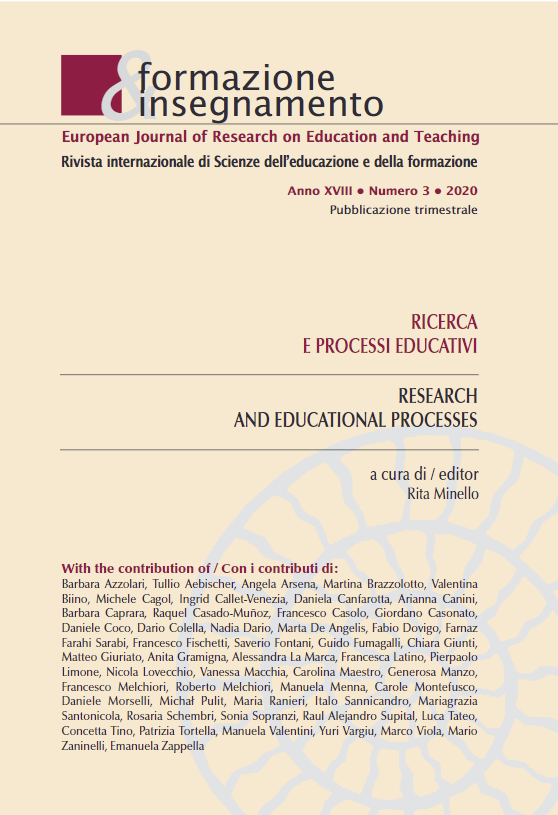The masked relationship. An educational perspective on social communication and facemasks
DOI:
https://doi.org/10.7346/-fei-XVIII-03-20_02Abstract
In order to contrast the COVID-19 pandemic, surgical facemasks have become very widespread, and compulsory in many contexts, including schools. Yet, while their value for health is beyond dispute, this safety is bought at the expense of some impairment in social communication, since the face is a very relevant bodily channel for both verbal and nonverbal communica-tion. In this article, after reviewing some well-established psychological and neuroscientific research findings on face perception, we reflect upon what happens if face is obstructed by the facemask. Recent findings support our hypothesis that facemasks actually impair nonverbal communication, and especially the expression of emotions, hence possibly affecting empathy. We then reflect upon the consequences of being masked in the classroom, and we examine some strategies that teachers can (and should/should not) adopt to counter this obstruction.
Downloads
Published
How to Cite
Issue
Section
License
Copyright (c) 2020 Pensa MultiMedia

This work is licensed under a Creative Commons Attribution 4.0 International License.
Formazione & insegnamento is distributed under Attribution 4.0 International (CC BY 4.0).
For further details, please refer to our Repository & Archiving Policy, as well as our Copyright & Licensing Terms.





